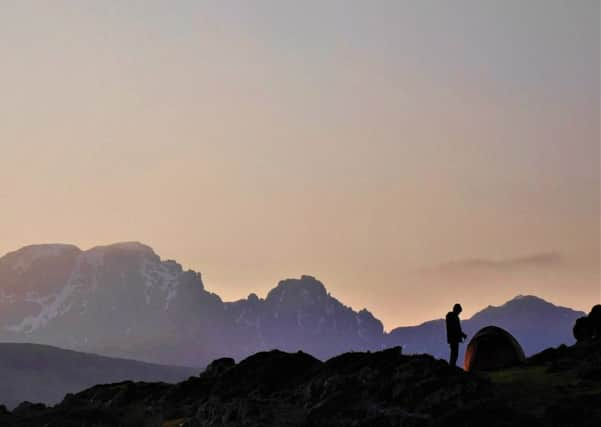Wilderness therapy benefits troubled teens, but what about parents? – Andrew Russell


Venture Mòr is a social enterprise owned by parent charity Venture Trust offering wilderness therapy programmes in the Highlands – and for A it was an eye-opener: “I have never been able to be so open and talk so freely in my life and to talk about it with you is just brilliant. I’ve been holding a lot in for years and I’ve finally been able to talk about it.” A’s reaction is by no means unusual, arriving for two weeks in the middle of nowhere – with no phone! – with a group of people you don’t know, who encourage you talk about your innermost feelings, can be an overwhelming prospect. For a lot of young people, attending the programme may be more their parents’ idea than theirs. Participants might arrive feeling reluctant, antagonistic, defensive, sullen or angry. Which is perfectly rational, frankly.
Two weeks later change is in the air. A key is the relational approach our multi-talented and dedicated staff takes. Often the experience of immersion in the wilderness is also stated as a compelling therapeutic environment. Literal distance from your problems lets you see them in perspective. The lack of distractions brings focus. The simple challenges – getting from A to B and then preparing a meal – provide a chance for self-reflection.
Advertisement
Hide AdAdvertisement
Hide AdPeople in the UK are becoming conscious of the idea that the outdoors can be harnessed as a therapeutic environment. In Shetland, your doctor might prescribe a dose of nature as an alternative, or in addition to medicine. A recent study by the University of Exeter has shown that spending two hours a week in natural settings has a positive effect on both health and on mental well-being – and this is just as true for people living in deprived areas as it for those with easy access to leafy green spaces.
When we couple the benefits of spending time in the outdoors with a team of skilled, qualified practitioners delivering individual and group therapy, it can have a swift and significant impact on an individual’s sense of themselves.
But why should these benefits be restricted to teens? For many, family relationships are seen as a part of their difficulties. That cuts both ways. The stress of a frayed relationship with a child obviously has an impact on parents’ own mental well-being – momentum builds around bad feelings, and healing that relationship becomes ever harder. If wilderness therapy helps teens – and it does – we are confident it will help parents too.
By supporting the whole family, we give everyone a better chance to reflect on their own behaviours, recognise patterns and trigger points in their relationships, and begin to make sustainable changes.
Our first course for parents has just launched, but most busy parents wouldn’t be able to free themselves up for a two-week programme. Instead, we’ve developed an intense four-day course that will run over a long weekend to make it as accessible as possible.
Our aims are to give parents respite from the day-to-day stresses, and to reflect on their relationship with parenthood and what that means for the relationships with their children; what they love about them and what could work better. We will provide support and opportunities for honest, sometimes challenging reflection. Change is a process, not a destination and seeing a parent committing to exploring their own process may well be the encouragement a child needs to consider doing the same. This approach is one that we recommend is pursued more widely. Scotland’s services for people trying to overcome a troubled past are still on the path to becoming person-centred; too many people find themselves bounced from one service to another without any sense of an overall plan, or that they are seen as a person rather than a series of problems to be solved.
But progress is being made. We should be moving boldly towards a more relational and systemic appreciation; considering all the relationships and influences that affect people, we can build our services to address the reality of each unique and complex social eco-system. For now, we invite any parents to join us as we offer a chance to breathe and think.
Andrew Russell is head of programme performance and impact at Venture Trust and Venture Mòr.